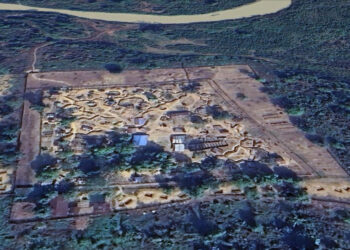RANGOON — Amid Naypyidaw’s 11th-hour push for a peace pact with Burma’s ethnic armed groups ahead of the Nov. 8 general election, the substance and scope of the agreement look increasingly questionable, if indeed a pre-poll deal can be reached at all.
Peace negotiations again appear deadlocked after five major ethnic armed groups met with President Thein Sein in Naypidaw on Sept. 9, a high-level gathering that did not meet the expectations of the ethnic delegation, according to one attendee.
“We were not happy with that meeting,” said Nai Hong Sar, vice chairman of the New Mon State Party (NMSP) and a member of the ethnic armed groups’ Senior Delegation for negotiations on a long-sought nationwide ceasefire agreement. “We want all our ethnic armed groups to participate in the signing of an NCA [nationwide ceasefire agreement], but the president did not want it.”
One of the last, and seemingly most intractable, obstacles to a nationwide ceasefire agreement concerns the term “nationwide” itself: The government has repeatedly rejected ethnic negotiators’ request that three armed groups in active conflict with the government in Shan, Kachin and Arakan states be allowed to sign the peace accord. The Ta’ang National Liberation Army (TNLA), Myanmar National Democratic Alliance Army (MNDAA) and Arakan Army have all been shut out of the nationwide ceasefire negotiations, rankling many of the ethnic participants in the talks.
Nai Hong Sar said the president made no mention of offering any kind of guarantee to the three groups that might leave the door open to them eventually signing the nationwide ceasefire, even if they are not allowed to join the initial pact. The Senior Delegation is pushing for such an assurance.
“From our side, we wanted to hear from him some type of guarantee for those three armed groups, because [as a concession] we even agreed not to let them participate at the moment,” Nai Hong Sar said.
He added that there were concerns among some ethnic armed groups’ leaders that the government’s unwavering stand against greater inclusivity was part of a “divide and conquer” strategy.
While the government has pressed for the signing of a ceasefire excluding the three groups as soon as possible, Nai Hong Sar said ethnic negotiators worry about the durability of any deal that sidelines the warring parties.
Thein Sein has made clear his desire to ink the nationwide ceasefire prior to Burma’s landmark general election, inviting 15 ethnic armed groups to a meeting in Rangoon on Sunday with the hope of setting a date for signing the accord. Turnout was not encouraging, with only eight of the invitees attending.
Notable absentees included the Kachin Independence Army (KIA)—which continues to clash with government troops in the country’s north—and Nai Hong Sar’s NMSP. No date for a signing was set.
Nai Hong Sar said his absence was in protest for what he interpreted to be a sidelining of the Senior Delegation in favor of dealing with ethnic armed groups on an individual basis.
“Our SD represents our ethnic armed groups, but they [the government] did not invite our SD. They invited individually each armed group to join that meeting,” he said.
Prospects for signing a nationwide ceasefire in the near term look increasingly dim, despite the government’s repeated assertions that the milestone is in the offing.
Part of the calculus inducing hesitancy among some is Burma’s November general election itself, adding an element of uncertainty to the peace process, with all bets off as to what kind of government the poll will bring to power next year.
Some believe the prudent approach to take is to wait until after the election, when the prospect of a government formed by the opposition National League for Democracy (NLD) might see ethnic armed groups win more favorable terms.
‘The Government Will Not Wait’
Undeterred, the current government is pushing ahead and has invited ethnic armed groups to meet on Oct. 3 in Rangoon to discuss a signing date, according to Hla Maung Shwe of the Myanmar Peace Center. Government negotiators will push for a mid-October signing date, he said—regardless of how “nationwide” the pact is in practical terms.
“There will be no problem [achieving a signing], but there will be some holdout groups who do not want to sign it yet. The government will not wait for an all-inclusive signing,” Hla Maung Shwe told The Irrawaddy on Thursday.
Members of the Senior Delegation plan to meet again from Sept. 27-28, when they will discuss the state of negotiations.
The government did soften its line this week on the exclusion of the three groups, inviting the TNLA to sit down for talks about signing a bilateral ceasefire as a precondition for inclusion in the nationwide accord.
Tar Bong Kyaw, the TNLA general secretary, said no date had been set for the two sides to meet, with a venue for the talks proving to be a sticking point.
“For our side, we agreed to meet, but there’s still no clarity on where we will meet. For us, we wanted to meet on the border with China, but they asked us to come and meet in Chiang Mai [Thailand]. Our leaders are out there in the jungle, and we would not be able to go to Thailand,” said Tar Bong Kyaw.

















